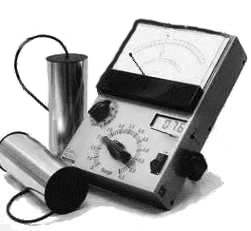Preclear's Indicators |
||
|
The End Phenomena on any major process
include: Pc has a cognition: that is, a new
realization, a statement like: "I suddenly realize..." Or:
"It just became clear to me..." He has realized something new
about his life, his past, his relationships, and so on. It is a subjective
new understanding the pc has obtained as a result of running the process.
Sometimes it can be a spectacular life-changing new knowledge. It is not
always spectacular, but it is always a "What do you know!" type
of realization. It results in a higher degree of awareness and
consequently a greater ability to succeed with one's activities in life. A Floating Needle. This applies of course only to metered sessions. You learn to run some processes - such as Self Analysis - without a Meter. These processes were designed for that. They could be run with the pc on a Meter as well. If they are, you will see the Floating Needle at the EP. The Definition of A Floating Needle (FN or F/N): A floating needle is a certain needle behavior on a Meter. It is a rhythmic sweep of the needle over the dial at a slow, even pace. A valid floating needle is always accompanied by very good indicators in the pc. So the EP you are looking for when doing unmetered auditing of the Self Analysis Lists are VGI's and Cognition. Here are some other technical words that you should have an understanding of, when you run a process like a Self Analysis Lists:
Good and Bad Indicators
The two fundamental Bad Indicators, which take
precedence over all others:
1. Pc cheerful or getting more cheerful. 2. Pc cogniting in auditing. 3. Fundamental rightnesses of pc seem to prove themselves. 4. Pc stating things to auditor accurately and briefly. 5. Pc finding things quickly. 6. Pc focusing on process question or commands. 7. Pc running rapidly and processes going to EP as confirmed by Meter and cognitions. 8. Pc finds information easily. 9. Pc running well and when he runs into somatics they discharge. 10. Pc gets hot and cools off in auditing or gets warm and stays warm in session. 11. Pc has occasional aches, pains, emotions turn on in session, but briefly. 12. Pc not having many present time problems and they are easily handled when they happen. 13. Pc stays certain of the session solution. 14. Pc happy and satisfied with auditor. "He can do no wrong". 15. Pc not against or protesting auditor's actions. 16. Pc looks better after auditing. 17. Pc has more energy. 18. Pc not battling pains, aches or illnesses during auditing. He can have somatics, but he doesn't get sick. 19. Pc wants more auditing. 20. Pc's confidence increases. 21. Pc's itsa's freely but he stays on subject. 22. Auditor finds pc's case explanations easy to understand. 23. Pc's itsa and confront improving. 24. Pc's Bank getting straightened out. 25. Pc comfortable about getting auditing. 26. Pc turns up for auditing voluntarily. 27. Pc punctual and willing and ready to get auditing but is relaxed about it. 28. Pc's trouble in life lessening. 29. Pc's attention becoming freer and more under his control. 30. Pc getting more interested in the data and the technology. 31. Pc's havingness in life improving. 32. Pc feels his environment is easier to handle.
33. Meter responding as expected. 34. What's being done gives good Meter reactions. 35. What is being found gives good Meter reaction. 36. Needle loose and responsive. 37. The Meter responds when pc gets a cognition. 38. Further Meter response when pc continues to talk about something. 39. Meter behaves as expected. 40. Meter's TA range between 2.0 to 3.5. 41. Good TA action on finding things. 42. Meter responding well on what pc (and auditor) think is wrong. The two fundamental Good Indicators, whose presence
allows all others are: The Meter
|
||















